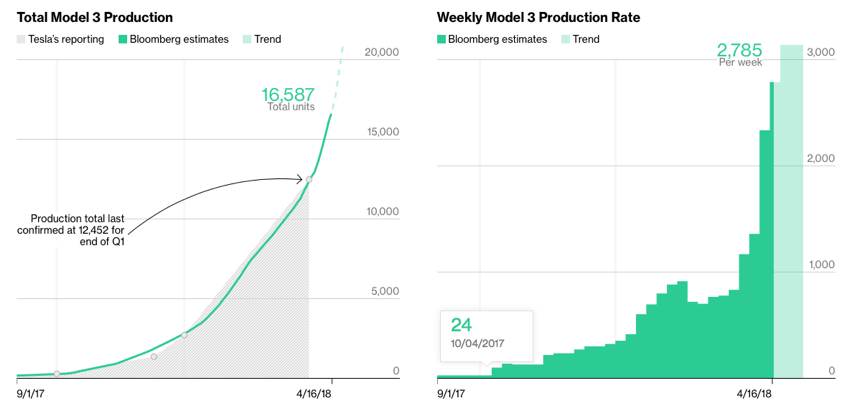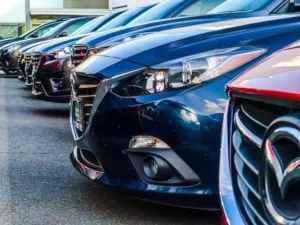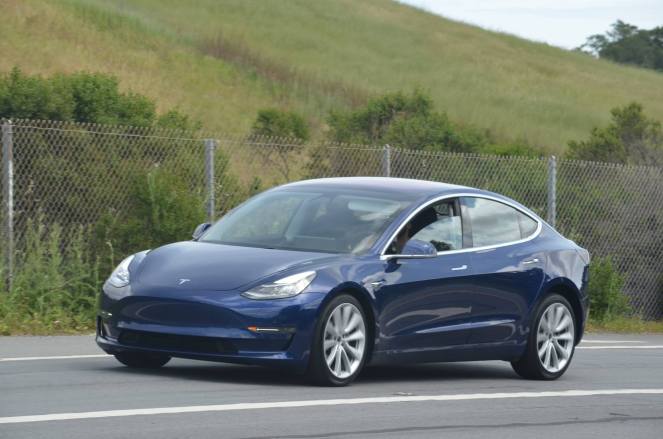Tesla has many thousands of deposit holders waiting for their car.
Since the Model 3 launch in late July 2017 the production rate has inched up in fits and bursts as Tesla add and tinker with the production process, the output of the GigaFactory making the Battery Packs and wrangle with suppliers.
Production run rates are way behind the expectations the Mr Musk outlined a year ago as the Tesla production goal. Those pre launch numbers seem no more than wistful thinking. The EV makers initial production goals were 2,500 per week by end of 2017 and 5,000 per week by end of Q1 2018.
The actual output has become a closely watched number by both investors and deposit holders.
How best to determine what going on? One great source based on crown sourcing is the report managed by Bloomberg that attempts to cross reference VIN numbers assigned to Tesla and customers reporting actual assigned VIN.
The data is updated on a super regular basis. The most current chart from April 16th 2018 is below and shows the production rate at 2,785 cars per week with a total Model 3 production of 16,500 cars.

Catch the latest data directly from Bloomberg tracker.

Bangers Rule the roads
Average age of a car hits 10 years Reports today suggest that the average age of cars on the roads is increasing, surpassing 10 years. This isn’t surprising, given the decline in new car sales and manufacturing. In the UK, new car sales have generally declined since 2019, with a significant drop in 2020 and



